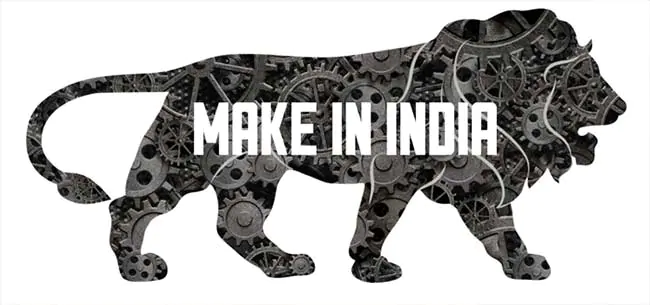Copyright Registration for Creative Works
Don't leave your original work vulnerable! Copyright registration from the government grants official recognition and establishes your exclusive ownership rights. This provides a powerful legal shield for your creations. With copyright registration, you gain control over how your work is used commercially. You can profit from it through sales, licensing, or reproductions. Additionally, copyright registration strengthens your claim to ownership internationally, allowing you to showcase your work globally with confidence. You can also control who can reuse your work and under what conditions. Our secure and guaranteed copyright registration package takes the hassle out of the process, ensuring your work's legal protection and value are safeguarded..
₹2499
₹2499
Save 0%
Have any queries? Talk to our expert
By clicking on Proceed to Request a Callback Service, You have accepted our Terms & Conditions Policy checked
Copyright Registration for Creative Works
Understanding Copyright: Your Rights as a Creator
Copyright is a legal provision that acknowledges the rights of intellectual property owners. At its core, it revolves around the right to replicate or reproduce a piece of creative content. In simple terms, when someone creates intellectual property, they gain specific rights over it. Consequently, only the original creator or individuals they grant permission to can reproduce or use that content. Through copyright law, creators are endowed with an exclusive privilege to use or reproduce their work for a set duration. After this period elapses, the copyrighted material might transition to the public domain.
What Can You Copyright?
Copyright serves as a protective shield for a diverse range of creative outputs. The Registrar of Copyrights has structured a detailed register, segmented into six clear categories, each dedicated to particular types of intellectual creations:
- Literary Works (Excluding Computer Programs): This division includes various written works like novels, poems, essays, articles, and similar creations.
- Musical Works: Items like tunes, song lyrics, and musical notations fall within this category.
- Artistic Works: Copyright in this realm covers visual arts like paintings, sculptures, drawings, and similar artistic endeavors.
- Cinematography Films: Films and related audiovisual projects enjoy the benefits of copyright protection in this category.
- Sound Recordings: Audio recordings, whether they are of music, spoken word, or other sound-driven content, are protected here.
- Computer Programs, Tables, and Compilations: The digital world's cornerstones, such as software, data tables, and compilations, receive their protection in this segment.
Copyright Law
Copyrights are governed by "THE COPYRIGHT ACT, 1957." This legislation has seen numerous updates over the years to remain relevant in the dynamic world of intellectual property rights.
The Importance of Copyright Registration
Registering your Copyright is crucial. It not only establishes your legal claim over the work but also empowers you with control over its distribution, reproduction, and any subsequent translations or adaptations of the content.
Why Should You Register Your Work Under Copyright Law?
Although it's not mandatory to register your work under copyright law, it's strongly advised due to several significant advantages. Acquiring copyright protection grants creators distinct rights over their creations, ensuring that their work remains safeguarded from unauthorized duplication for a specified duration. This legal shield provides peace of mind, fostering inspiration and driving creators to pursue and generate more creative content.
Advantages of Copyright Registration
Registering your work under copyright law offers numerous benefits for creators and holders of intellectual property rights:
- Protection for the Owner: Copyright registration grants owners exclusive rights, including reproduction, distribution, adaptation, sharing, and translation of their work.
- Robust Legal Safeguard: Registration ensures that the work cannot be copied without the rightful owner's permission.
- Boosts Brand Image: Holding a registered copyright serves as proof of ownership and can enhance brand reputation and goodwill through effective marketing.
- International Protection: Copyrighted works in one country typically enjoy similar rights in many other countries, including India.
- Treat Copyright as an Asset: Copyright is recognized as an intellectual property asset and can be traded, adding a financial dimension to the creator's portfolio.
- Increased Visibility for the Owner: Registered works are more prominently showcased, globally available, and easily traceable in copyright databases, which can deter potential unauthorized use.
- Financial Security: Copyright provides economic resilience by enabling creators to diversify and capitalize on their content, leading to sustained income streams.
Copyright Registration Documents
The required documents for copyright registration include:
- Application form
- Copy of the work that needs to be registered
- Proof of ownership, such as an assignment deed, if the work is not created by the applicant
- Identity proof of the applicant
- Proof of the applicant's address
- Prescribed fees
Service Includes
- Application Drafting
- Application Filing
- Government Registration Fees
- Dairy Number Issue
Steps to Secure Your Copyright
-
Submission of Application
Draft an application that includes all required details and a statement of particulars using the designated format (FORM XIV). Remember, individual works require separate applications. Each application must be signed by both the applicant and an Advocate who holds a Vakalatnama or a Power of Attorney (POA).
-
Issuance of Diary Number
Upon application receipt, the registrar assigns a Diary Number, signifying the commencement of the registration process. Thereafter, a 30-day waiting period is observed to allow for any potential objections.
-
Handling of Copyright Objections
Should no objections arise within the 30-day window, a scrutinizer evaluates the application for inconsistencies. If deemed satisfactory, the scrutinizer proceeds with registration and provides the registrar an extract for the Register of Copyright.
-
Resolution of Objections
If objections emerge, both involved parties will receive a notification detailing the objections. A subsequent hearing will be convened to address and resolve these concerns.
-
Application Scrutiny
Post-hearing, if needed, the scrutinizer conducts a thorough examination of the application. Depending on the findings, the application may be endorsed or declined.
-
Issuance of Copyright Registration Certificate
On application approval, the corresponding authority dispenses the copyright registration certificate. Typically, the entire procedure concludes in around 2 to 3 months.
Frequently asked questions
How do I register my copyright?
What is copyright registration?
Why is copyright registration important?
How long does copyright registration last?
What our clients say
See what our clients have to say about their experience working with us and our team.
Awards & Recognitions
We've been acknowledged by Startup India and Digital Startup India for our efforts in aiding startup ventures in India.


